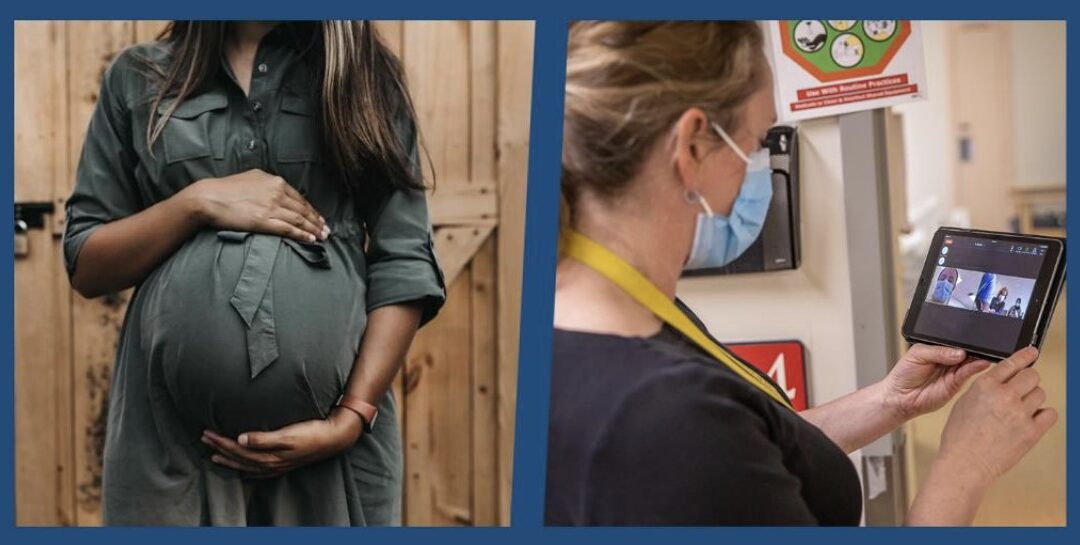McMaster researchers awarded $1.9 million from JRI to study severe maternal morbidity

A $1.9 million grant from the Juravinski Research Institute (JRI) – a partnership between Hamilton Health Sciences, McMaster University and St. Joseph’s Healthcare Hamilton – will enable a team of McMaster experts and community partners to advance research on severe maternal morbidity (SMM), with the goal of improving access to health care for those impacted by SMM in Hamilton and beyond.
Severe maternal morbidity refers to unexpected outcomes related to pregnancy, labour, childbirth and the postpartum period resulting in severe illness, prolonged hospitalization and long-term disability.
SMM affects 16 out of every 1,000 pregnancies in Canada. In the Hamilton region, this number is estimated to be at least twice as high.
Giulia Muraca, lead investigator on the study and an assistant professor in the Department of Obstetrics and Gynecology and Health Research Methods, Evidence, and Impact, says the study will closely examine the potential causes and impacts of SMM in the Hamilton region.
“Currently, we do not have sufficient information on why SMM numbers are higher in Hamilton, which populations are most affected, and what the long-term physical, social and mental health implications are for those impacted,” she says.
“We’re collaborating with multi-disciplinary experts from across McMaster and the Hamilton community to answer these questions and develop a care paradigm that can support patient recovery and ultimately help reduce SMM in Canada and its long-term impacts on individuals and communities.”
As part of the study, a team of pregnancy-care providers, mental-health clinicians, perinatal epidemiologists and public health experts will engage people and families that have experienced severe maternal morbidity to understand which populations are most affected, determine the long-term health implications of SMM and identify supports needed for care.
Along with Dr. Muraca, the team is co-led by Rohan D’Souza, associate professor in the Department of Obstetrics and Gynecology; Benicio Frey, professor in the Department of Psychiatry & Behavioural Neurosciences; Sheryl Green, associate professor in the Department of Psychiatry & Behavioural Neurosciences; and Susan Jack, professor in the School of Nursing.
The first pillar of the project will examine population-based data, such as demographics, outpatient visits, hospital admissions and birth registries, to better understand the types and implications of severe maternal morbidity, as well as the populations who may be at increased risk.
The second pillar involves conducting detailed, confidential enquiries into each case of severe maternal morbidity, with the aim of identifying root causes and implementing solutions.
The third pillar will see the team engaging with families and their pregnancy-care providers through surveys, interviews and focus groups to determine what actions are needed in the postpartum period to support physical and mental health and improve recovery and rehabilitation.
Once completed, the project could be scaled to benefit communities beyond Hamilton, says Dr. D’Souza, Canada Research Chair in Maternal Health.
“By directly engaging patients and their families in our study, we aim to better understand how SMM is impacting communities and develop systems of care that support the long-term physical and mental health of those impacted by SMM here in Hamilton and across Canada,” he says.
________________________________________________________________________________________________________
The project, titled SERENE: Supportive, Evidence-informed, Responsive, and Equity-oriented prevention-and-care model to reduce the incidence and NEgative impacts of severe maternal morbidity, has been made possible through a generous donation by the late Charles and Margaret Juravinski. Learn more about the Juravinski Research Institute.
News
